Filing for bankruptcy can be a daunting decision, especially for homeowners in Miami, where real estate is a valuable and sometimes volatile asset. However, bankruptcy laws offer various protections to help individuals retain their homes or at least mitigate their financial losses. With Miami’s unique real estate market—characterized by high property values and a large number of seasonal residents—homeowners facing bankruptcy should understand their options and protections. Here’s a closer look at how filing for bankruptcy affects homeownership in Miami and what steps homeowners can take to protect their property during financial difficulties.
Bankruptcy and Florida’s Homestead Exemption
One of the most significant protections for Miami homeowners is Florida’s generous homestead exemption. Under Florida law, this exemption allows individuals to shield an unlimited amount of equity in their primary residence from creditors in a bankruptcy filing, provided certain requirements are met. The homestead exemption applies only to primary residences, so investment properties or vacation homes are not protected under this rule.
The homestead exemption is especially valuable in Miami, where property values are high, as it allows homeowners to retain more of their equity. However, to qualify for the full exemption, homeowners must have owned the property for at least 1,215 days (about three years and four months) before filing for bankruptcy. If they have owned the home for less time, federal limits on the exemption may apply.
Chapter 7 Bankruptcy and Homeownership in Miami
In Chapter 7 bankruptcy, non-exempt assets are sold to pay creditors. However, Florida’s homestead exemption often protects homeowners from losing their primary residence. If the homeowner’s equity in the home falls under the exemption limit, they can likely keep the property. This can be particularly advantageous in a high-value market like Miami, where property values can significantly outpace mortgage balances.
If a Miami homeowner has substantial equity that exceeds the homestead exemption, however, the bankruptcy trustee may choose to sell the property to repay creditors. In this case, the homeowner would receive a portion of the proceeds up to the exemption limit. For this reason, individuals considering Chapter 7 should carefully evaluate their home’s equity and compare it with the state’s homestead exemption rules.
Additionally, homeowners in Chapter 7 must keep up with mortgage payments to avoid foreclosure. While bankruptcy can discharge personal liability for mortgage debt, it does not eliminate the lender’s right to foreclose if payments aren’t made. For those behind on mortgage payments, Chapter 13 may offer a better alternative.
Chapter 13 Bankruptcy and Home Retention
For Miami homeowners with substantial equity or those who have fallen behind on mortgage payments, Chapter 13 bankruptcy is often a more suitable option. In Chapter 13, individuals propose a repayment plan that lasts three to five years, allowing them to catch up on missed payments and keep their home. This is particularly helpful for Miami homeowners who want to retain their property and have a stable income to support a structured repayment plan.
In Chapter 13, homeowners can also spread out any mortgage arrears over the life of the repayment plan, making it easier to get back on track. As long as they stay current on these payments and continue with regular mortgage payments, they can avoid foreclosure and retain ownership of their home.
Additional Protections for Miami Homeowners in Bankruptcy
In addition to the homestead exemption, bankruptcy offers Miami homeowners automatic stay protection, which halts collection actions and foreclosure proceedings temporarily. This provides valuable time to strategize and evaluate options. For individuals who may only need a brief respite to catch up financially, the automatic stay can prevent a home from going into foreclosure while they reorganize.
Bankruptcy can also help homeowners eliminate certain types of junior liens or “second mortgages” if the home’s value is less than the balance of the primary mortgage. This process, known as lien stripping, is available in Chapter 13 cases and can free up equity for the homeowner by reducing overall debt.
Considerations for Miami’s Unique Real Estate Market
Miami’s real estate market is unique due to high property values, seasonal fluctuations, and significant interest from international buyers. As a result, Miami homeowners facing bankruptcy may be more concerned about retaining their high-value property. They should carefully consider whether Chapter 7 or Chapter 13 offers better protection for their assets.
Moreover, Miami’s real estate market often experiences price volatility. This can impact a homeowner’s decision to file for bankruptcy, as the potential sale value of their property might fluctuate. Consulting a bankruptcy attorney with knowledge of Miami’s market trends can help individuals make an informed decision.
Filing for bankruptcy in Miami can be complex, particularly when it involves protecting a high-value home. However, Florida’s homestead exemption, combined with the protections offered in Chapter 13, gives homeowners multiple ways to retain their property while navigating financial difficulties. For many, Chapter 13 allows for structured debt repayment, helping individuals catch up on mortgage payments and avoid foreclosure. Homeowners considering bankruptcy should seek professional advice to fully understand their options and protect their assets in Miami’s dynamic real estate market.
